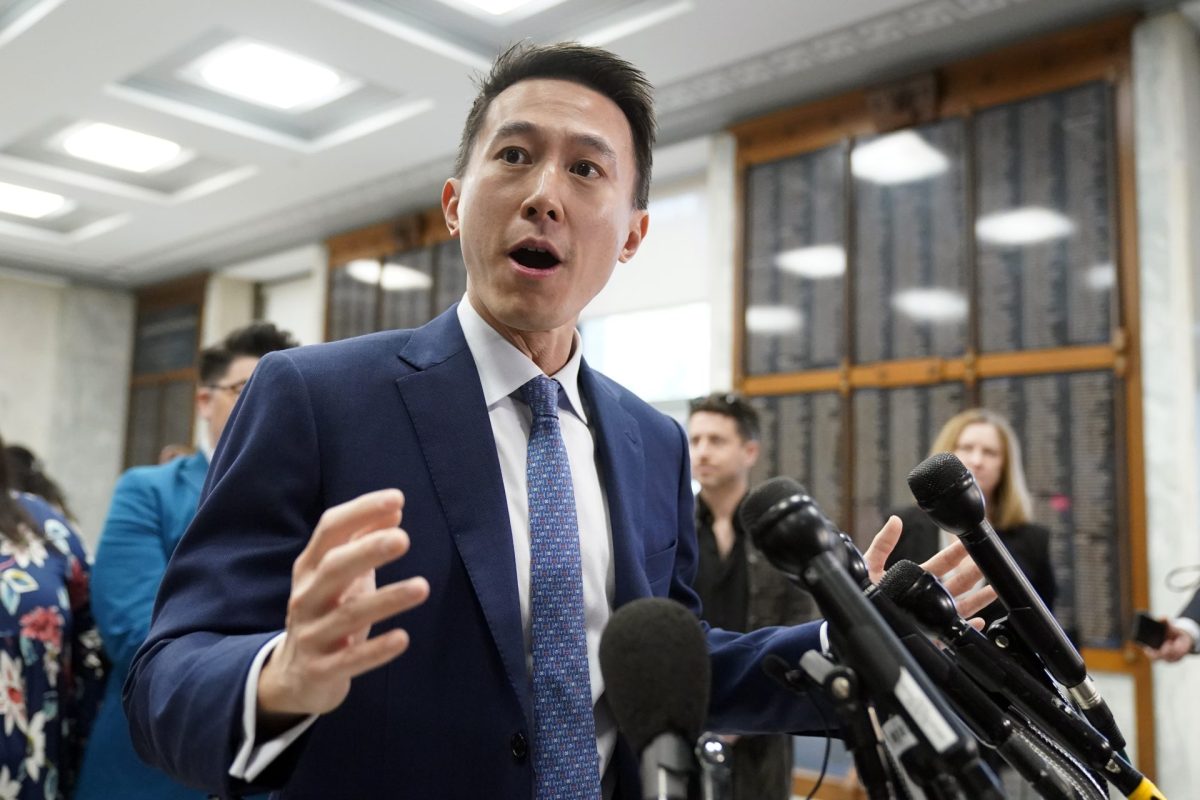Though temporarily shut down Jan. 18 in anticipation of a Jan. 19 federal ban, TikTok has restored service in the United States.
The move came after NBC reported that former President Biden said he would leave the enforcement of the ban after the deadline to then President-elect Trump.
On Monday, newly inaugurated President Trump signed an executive order delaying the ban for 75 days, though TikTok remains unavailable to new U.S. users in app stores.
This delay comes with a stipulation: the social media platform still must find a U.S partner.
“I am very interested in who’s going to buy TikTok. Mr. Beast, Elon Musk wants to buy it, it’s really up in the air right now. It’s been very entertaining to witness in real time,” Kay Weeks, a sophomore at DePaul, said.
Before Trump delayed the ban, attorney Ross Hersemann told The DePaulia that the U.S. Government is sending a clear message.
“The U.S. is cracking down. Enforcing data privacy laws against foreign entities in the name of national security is the tech law soup du jour,” said Hersemann, an adjunct instructor at DePaul and founder of a Chicago law firm that specializes in the needs of video game developers and tech entrepreneurs. “Nationally, American-based tech companies seem to enjoy a more tolerant double standard when it comes to their own inadequacies in protecting user data, but that privilege may be expiring.”
During TikTok’s attempt to overturn the ban, the company argued to the Supreme Court that the ban violated its First Amendment rights.
The Supreme Court still ruled against the platform, leading to concerns over free speech, according to CNN.
The ruling will “almost certainly” affect interpretations of the First Amendment while raising more questions than answers, according to Hersemann.
“It plays it safe by sticking to the issues of corporate divestiture and national security rather than tackling the whole enigma of how to fairly balance free speech and safety online. It saves those issues for another day,” Hersemann said.
While the U.S. servers are back online, the TikTok app is still unavailable on the Apple App Store and Google Play store, at the time of publication.
In the Supreme Court’s ruling against TikTok, it found that Congress’ national security concerns were “well-supported” regarding “TikTok’s data collection practices and relationship with a foreign adversary.”
Some users also believe that Congress’ concerns are well-supported.
“Of course there’s brain rot … but I think TikTok has radicalized a lot of people in a sense, which I think is very important,” Niko Gostovic, a sophomore at DePaul, said.
Legal experts say TikTok’s ban also may set the precedent for further bans on foreign companies.
On Jan. 7, CBS reported that the U.S. Department of Defense declared that Tencent — the largest video game publisher in the world — among other companies, is working with the Chinese military.
Lawmakers may use this declaration as a reason to draft more legislation like the TikTok ban.
New policies governing online interactions are a “safe bet,” according to Hersemann.
“However, technology always evolves more rapidly than lawmakers can draft, implement, and interpret policy. I have no doubt that before future laws are implemented and enforced a new technology or platform will come along that will render them inadequate once again,” Hersemann said. “Regulation and innovation are trapped in an infinite loop of cat and mouse.”
The ban of a foreign platform raises questions about privacy, free speech and the function of government.
Hersemann believes that both privacy and free speech must be defended.
“Our freedom to freely speak and assemble online is of paramount importance and should be passionately protected,” he said. “But we should not lose sight of the fact that privacy is also a right worth protecting.”
For a student like Jahiem Brown, a freshman at DePaul University, much of this discourse is about what TikTok shows its users.
“If you’re not a person with a mindset of exploring something that you’re not familiar with, TikTok can kind of shorten your world view into what you like,” Brown said. “That’s where a lot of the political discourse of the app comes into play.”
Related Stories:
- TikTok trends are bad for feminism: ‘Gorgeous Gorgeous Girls’ contribute to ‘Girl Bossing’ over-consumption
- Corporations pour millions into inauguration Democrats plan to ditch
delivered to your inbox every Monday.
Support Student Journalism!
The DePaulia is DePaul University’s award-winning, editorially independent student newspaper. Since 1923, student journalists have produced high-quality, on-the-ground reporting that informs our campus and city.
We rely on reader support to keep doing what we do. Donations are tax deductible through DePaul's giving page.


